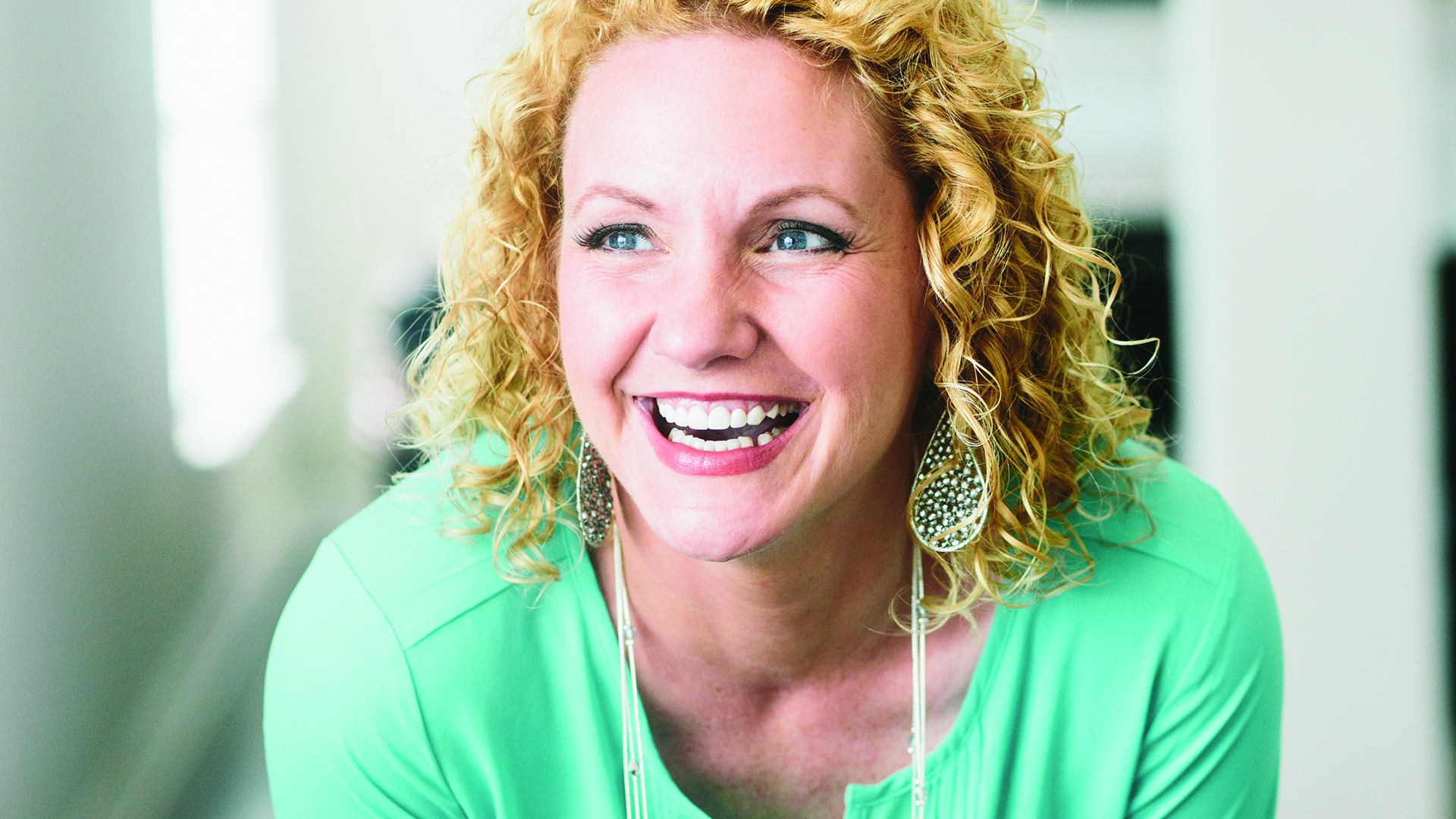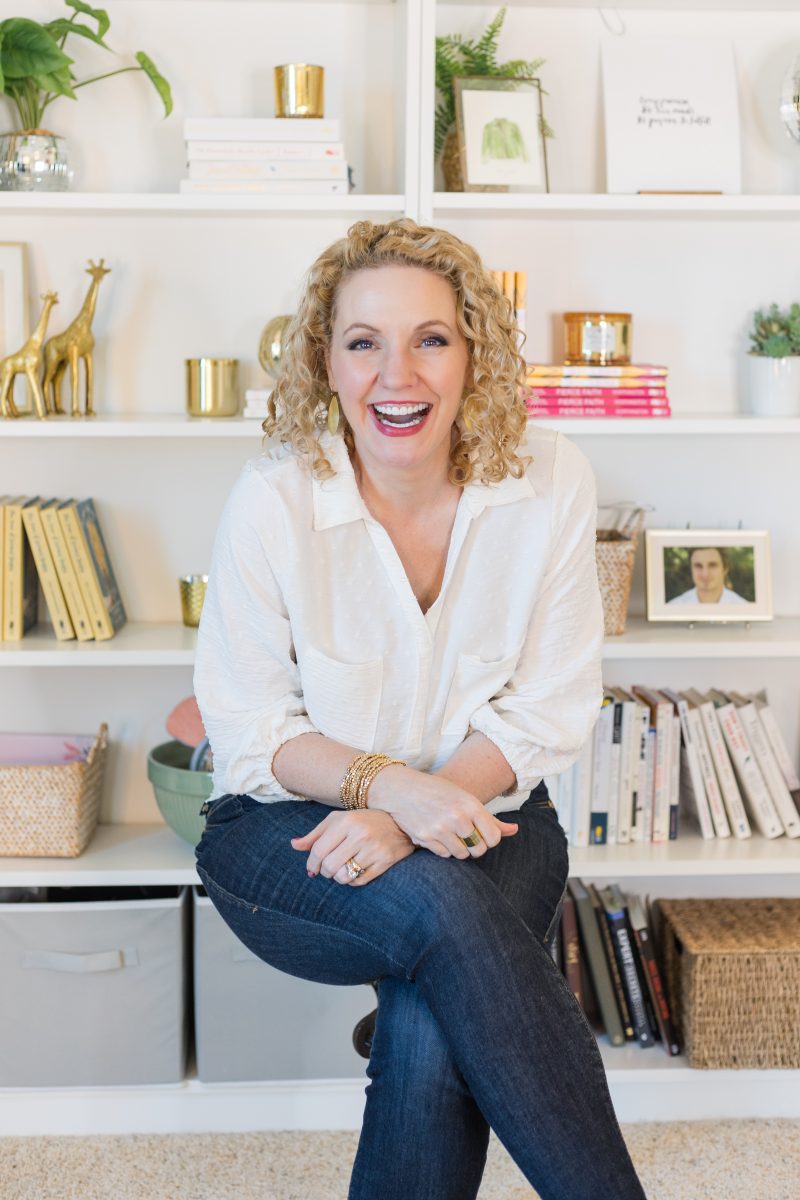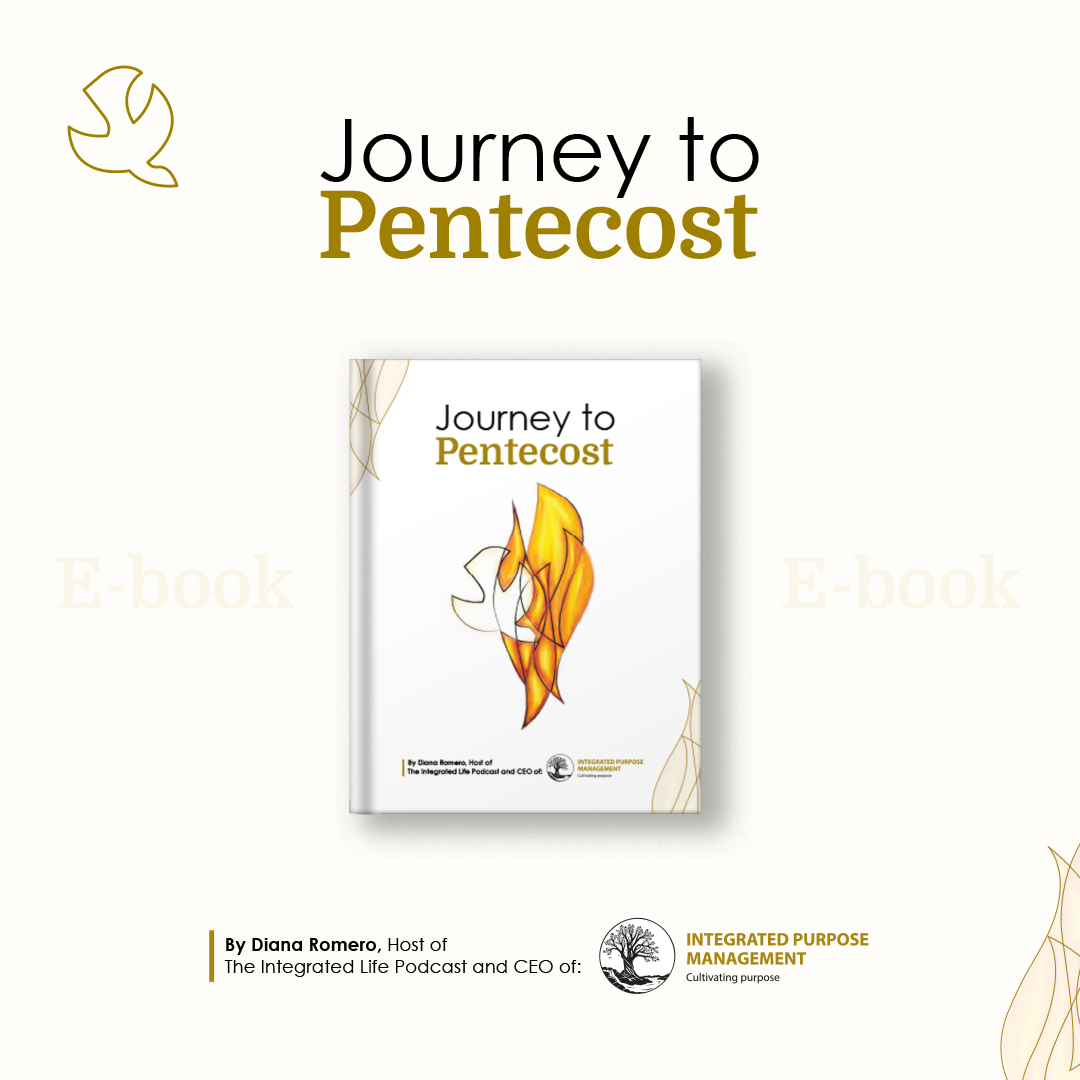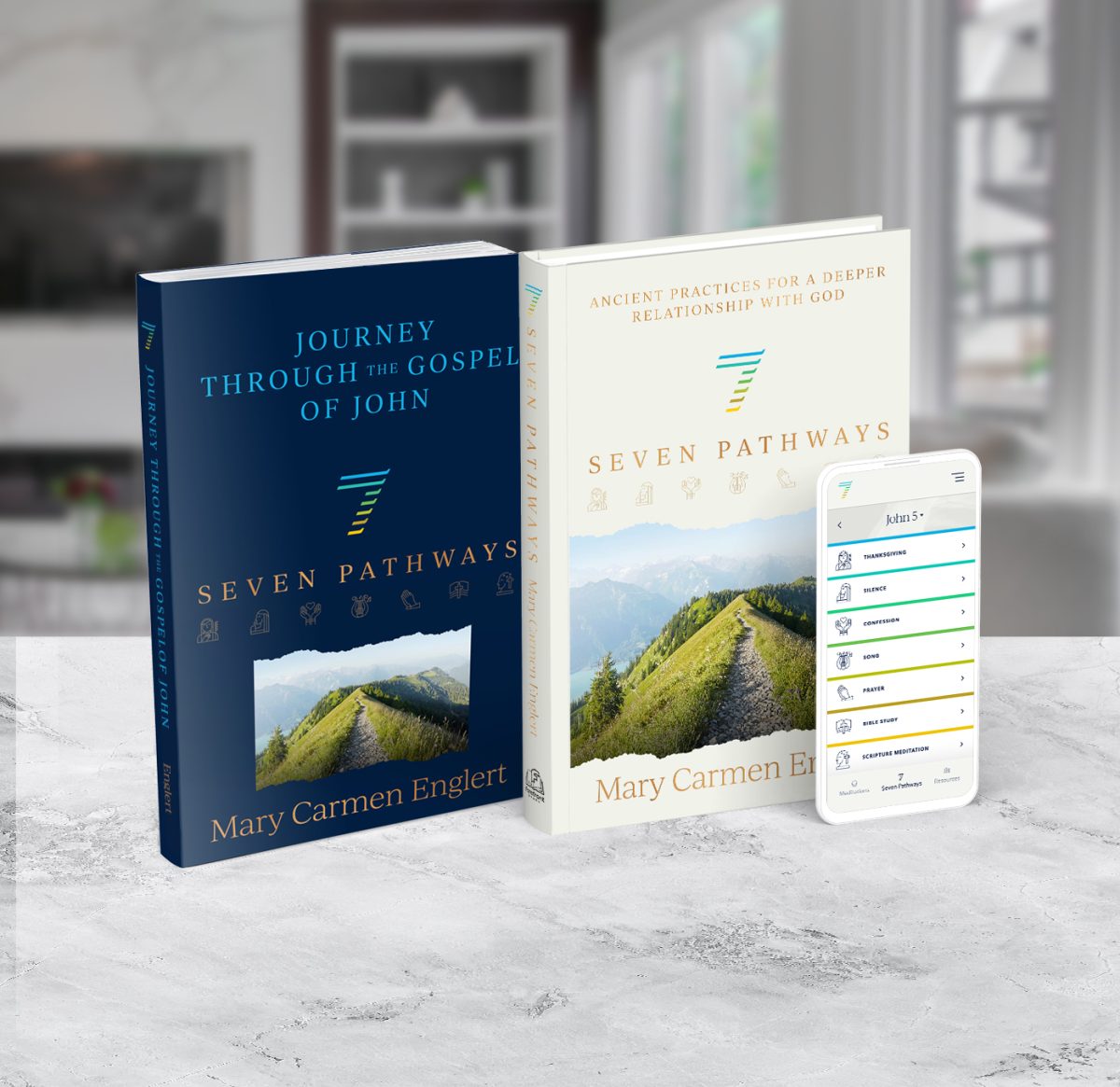
Why You Should Be Friends With Your Imposter Syndrome
Alli Worthington, founder of The Coach School and author of Fierce Faith, explains why imposter syndrome should be viewed as friend, not foe, and offers a simple self-care addition we can all add to our day to combat the weight of anxiety.
You can listen to this conversation with Alli on our podcast, Work, Love, Pray! Listen below or click here to find your preferred listening platform.
How can someone overcome the smothering feelings of imposter syndrome and regain the confidence they might have lost as a result of that imposter syndrome?
We tend to think about imposter syndrome in a way that gives it more credence than we need to when it pops up in our life. When imposter syndrome pops up, it’s natural to want to resist it and fear it. But I would argue that we need to look at imposter syndrome as a welcome friend, because when we’re feeling imposter syndrome, it means we’re growing. It means we’re doing something else. Whenever you advance in your career or you expand a business, of course you’re going to have imposter syndrome because you haven’t done it before. So when you do something new and imposter syndrome shows up, don’t freak out. Welcome it because it means you’re growing and doing something new.
We forget that when we do something new, we’re going to be bad at it for a little while. But if something is worth doing, it’s worth doing bad at first. We are going to be terrible at new things in the beginning when we’re figuring them out…and that’s okay. I’ve podcasted for six years and you couldn’t pay me enough money to go back and listen to Year One. But if it’s important, we have to be willing to not be great at it at the beginning.
The only way we get great is by getting our reps in. If we wait to feel confident or we sit around until our feelings magically make us feel confident, we’re never going to be confident. You have to take action before your mind does. When we take action, we get our reps in and then we build confidence. And then before you know it, you feel great and you look around and think, ‘What do you know? I’m the kind of woman that does this now.’ That’s where confidence comes from and by that point, imposter syndrome is long gone.
Experiencing a setback in any area of your life can be a huge trigger or source of anxiety. How would you recommend that someone remains resilient during and after a setback?
When you’re in the beginnings of trying to repair from a setback, you want to give yourself baby steps and as many quick wins as possible to build up your confidence again. Remember: confidence doesn’t come from our thoughts; it comes from taking action. So when you’re recovering from a setback, don’t make any big moves or take any big risks.
After you experience a setback, there are always going to be things that will trigger us and transport us right back to the onset of that setback. Before I started my career, I was a stay-at-home mom in 2008. Thanks to the housing collapse, we lost our home, and in losing that home, we lost our life savings and most of our possessions. I had also just given birth to our fifth son. It was a mess.
Then, in March of 2020 when everything shut down because of Covid, I was taken back to that moment in 2008. I had been building my company for years and I had many people who depended on me. In that moment in March 2020, in my mind, everyone’s company was going to go under, the whole economy was going to crash, and I was going to lose all my clients and live under a bridge. It was so easy to go back there in my mind and let those thoughts run wild.
But what I did in that moment was decide to compartmentalize my anxiety and my worry before they could take over everything. I still had to help my clients figure out how to navigate everything that 2020 brought to the world. In order to be in a headspace to be a help to my clients, I allowed myself what I called ‘quality freak out time.’ I started scheduling when I was going to freak out, when I was going to doom scroll and let myself spiral out of control and catastrophize everything.
I gave myself like 30 minutes a few times a week. Whenever I would feel my mind want to go to its freak out space, whether I was with my kids or my husband or on a coaching call, I’d remind myself that I had quality freakout time scheduled. Telling my mind that gave my anxiety somewhere to live and I knew I was still going to be able to take care of myself. I knew I was going to feel all the feelings that I needed to feel, but I was keeping them under control so they didn’t have to take over my life. And I doom scrolled and I thought it was the end of the world and it was so terrible. Um, but it didn’t take over my life. Mm. The anxiety did not win. So quality freak out time is what I call it. Psychologists have another fancy term for it, . But I think quality freak our time (psychologists have another fancy term for it) is a great, great way to manage when we want to worry about stuff, but we don’t want it to take over our life.
How did you keep yourself from staying in ‘quality freak out time’ once it’s time to be done with it?
I’m pretty disciplined with my calendar. As a coach, I really live by the calendar. At the end of quality freak out time, I would always end with a prayer and ask the Lord to give me the strength, clarity, and vision to take care of everyone I was responsible for. Then, I would use the discipline of having my bottom in a chair and acknowledge that, for the next 30 minutes or the next hour, I was going to do something productive.
It takes a little bit of practice, but you need the discipline to tell yourself, ‘I’m going to be able to freak out about this a little bit more later.’ Now, when your anxiety or worry becomes something that is completely overwhelming and you can’t turn it off, that’s when it really is crucial to make sure that you’re working with the therapist. Quality freak out time is a great tool, but it’s only a great tool when you’re also seeing a great Christian therapist.
How can mentorship help female leaders who are dealing with anxiety?
Oh, it is so key. If we don’t have women speaking into our lives who are trained, who can help us, or who have been through it and have that life experience to help us navigate, we are just hopping through life on one leg with one arm tied behind our back. All the women in the 4word community are high-capacity leaders. They’re women who love the Lord, and they’re women to whom other people look and depend on. If these women don’t have others speaking into their lives, it’s not just bad for them; it’s bad for all of the women, men, children, and colleagues who depend on them.
In order to have the strength to face anxiety head-on, you have to be intentional with prioritizing self-care. Beyond quality freak out time, do you have other recommendations on how to make self-care a priority?
I have spent many years of my life as a busy mom and as an entrepreneur and was not taking care of myself. It wasn’t until I got the Apple Watch and noticed my heart rate variability settings. I got a stress app, and the stress app was like, ‘…uh.’ Now mind you, I’m feeling like 96% good. I was energetic, I was healthy, I was eating well—everything was fine. But then my watch would be like, ‘You are at a 91% stress level. You need to relax. Could you be getting sick?’ And I would react like, ‘No, I’m fine.’ But then I realized I had been pushing myself for so long that I really wasn’t taking care of myself, even though I would’ve checked all the boxes for self-care.
Again, the women in the 4word community are high-capacity women. I bet there’s a ton of women out there like me who are thinking, ‘I feel great. I’m sleeping. I’m eating well.’ But once you really learn to pay attention to your body, you will likely realize that maybe you do need a little more care for yourself.
Something that I have found very important for my health is breath work. I’ve even written about breath work in my books. Breath work is the only physical thing you can do that will calm your body down. Even the Navy seals do breath work to calm their anxiety. So if you don’t have a ton of time for self-care and a woman’s listening going, just try five minutes of really intentional breathing. Especially for women who are high-capacity, this tiny moment in your day could make all the difference.

Alli Worthington is the bestselling author of five books. She is the founder of The Coach School and is a speaker, podcaster, and business coach.
Her goal is to help women reach the next level. Alli coaches individuals, small business owners, and Fortune 500 companies to be more successful.
Alli’s no-nonsense, guilt-free take on business, family, and balance led to appearances on The Today Show and Good Morning America and in Forbes.
Alli, her husband, Mark, and their five sons live outside of Nashville, TN with a very pampered golden retriever.
You can connect with her at AlliWorthington.com and on Instagram at AlliWorthington.

This blog is sponsored by Integrated Life Podcast
Diana Romero, host of the Integrated Life Podcast, has created an incredible resource titled “Journey to Pentecost,” a 50-day mini-series that focuses on the coming of the Holy Spirit. She has created a devotional e-book as a companion guide to her podcast series, which is available to you for FREE.
Head to The Integrated Life Podcast website and click “JOIN THE COMMUNITY” to receive your free e-book!

This blog is sponsored by Seven Pathways
Seven Pathways is a new approach to strengthening your connection with God through ancient, proven Biblical practices, and many modeled by Jesus. Through creating a daily rhythm of the seven pathways: thanksgiving, silence, confession, song, prayer, Bible study, and Scripture meditation in a chapter-by-chapter study of the Gospel of John you will reset your day by fueling your thoughts with thankfulness, rediscover the luxury of silence, and the gift and power of prayer. Through Scripture you will be refreshed and rediscover the healing grace of God finding peace and purpose, joy and contentment while contending and hope and solace. Go to sevenpathways.com to purchase the book and Bible study and experience the new digital Bible study.